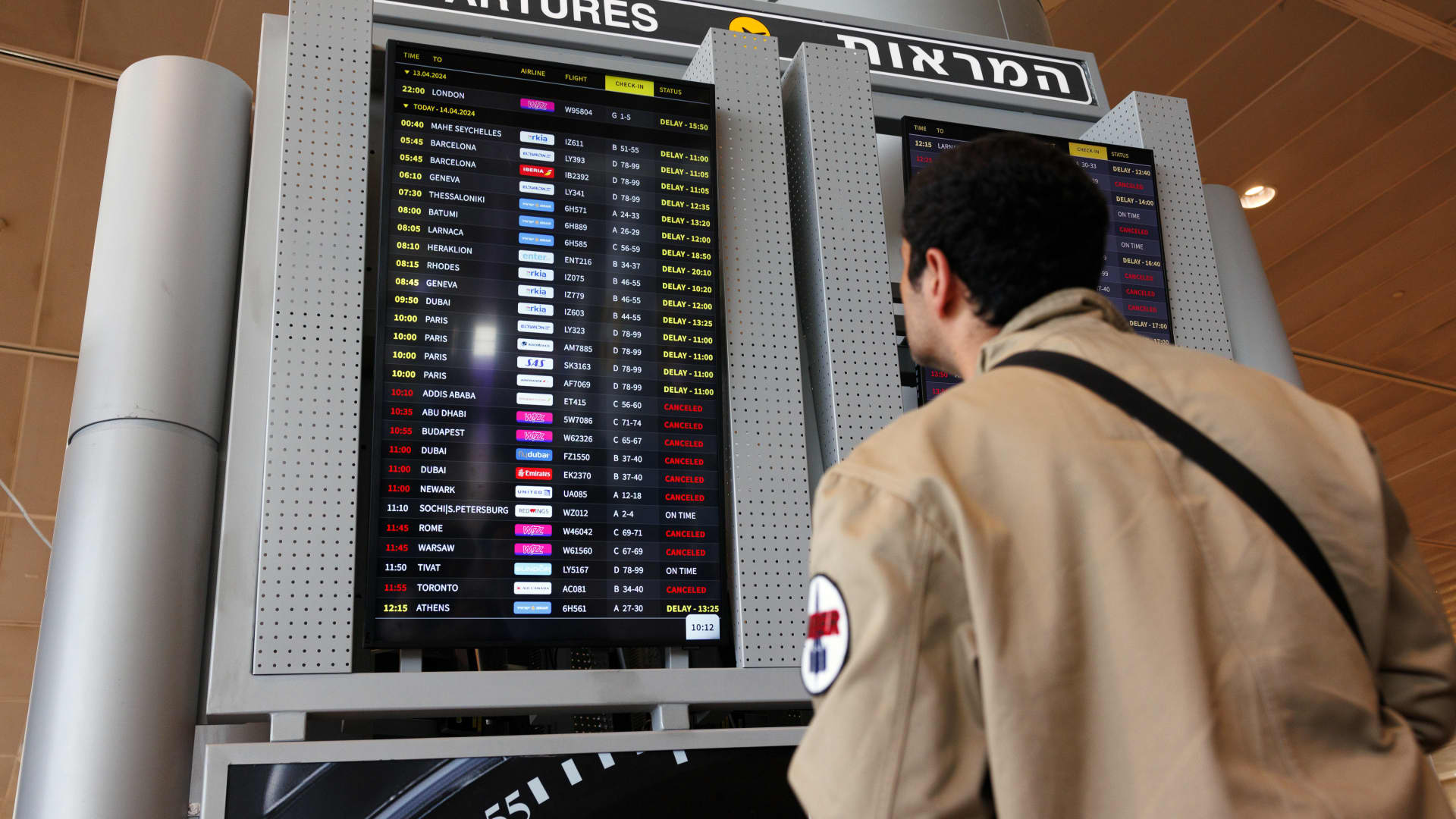Flights are still being disrupted and rerouted after Iran’s attack on Israel. Here’s what you need to know


Passengers checks their flight status in the departure terminal in Ben Gurion airport on the morning after a drone and missile attack from Iran, near Tel Aviv, Israel on Sunday, April 14, 2024.
Bloomberg | Bloomberg | Getty Images
Flights to Israel are set to remain disrupted for months amid heightened tensions with Iran, while other routes may take longer as airlines skirt the volatile region.
British low-cost carrier easyJet on Tuesday said it was extending its suspension of Israel flights for the remainder of the summer season, until Oct. 27, and would refund customers due to fly.
Rival Wizz Air resumed flights to Tel Aviv on Tuesday but said passengers may experience “schedule changes” and that it was monitoring the situation.
Dutch airline KLM canceled flights to Israel until Apr. 21, and said it was not flying over Iran and Israel. Air India said it had temporarily suspended flights to and from Tel Aviv and its Tuesday service was listed as canceled.
Germany’s Lufthansa Group said it had resumed flights to Tel Aviv, Amman and Erbil on Tuesday, but had canceled flights to Tehran and Beirut up until Thursday. It also said it is not using Iranian airspace currently.
United Airlines, the only U.S. airline currently flying to Israel, suspended flights and has offered customers due to travel to Tel Aviv before May 1 a full refund; while Air Canada has warned of delays to Israel services.
Along with flights from national carrier El Al, flights from European airlines Swiss, Transavia and AeroItalia were en route to Tel Aviv Tuesday afternoon London time, according to Flightradar24 data.
Israel closed its airspace for a period over the weekend after Iran launched more than 300 drones and missiles against military targets inside the country on Saturday. The attack caused limited damage and no fatalities, but huge uncertainty surrounds Israel’s response and the potential for an escalation of tensions in the region.
Jordan, Lebanon and Iraq also temporarily closed their airspaces.
Flightradar24 over the Middle East on April 14th, 2024 after Iran launched drone strikes towards Israel.
Source: Flightradar24
Passengers across the board are being advised to check for updates from their airlines, with flights including Chinese services to Iran and various services to Jordan also impacted.
The tensions are also impacting routes which fly over the Middle East when traveling to other parts of the world, particularly Europe-to-Asia routes.
The European Commission and the European Union Aviation Safety Agency said on Sunday there was “no overflight risk for civil aviation at any time” during the airspace closures.
However, it has issued an advisory for airlines to “exercise caution” over Israel and neighboring airspace measuring 100 nautical miles around the country. It also urged caution for travel over Iran.
With airlines also avoiding the airspace of both Russia and Ukraine due to the ongoing war, it gives Europe-Asia connections the options of flying across central Asia or south of the region. Diversions have already led to some knock-on delays of up to two hours, according to reports in the U.K.
Finnair has said it is not using Iranian airspace which may impact flight times from Doha.










